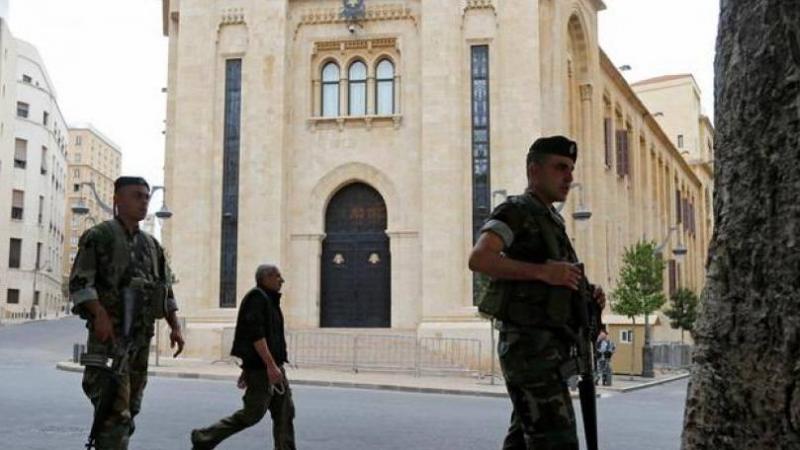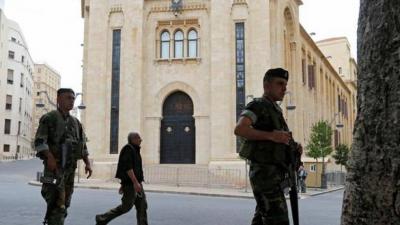The newly elected Lebanese parliament has entered a race against time to pass a series of essential laws before September 1, the constitutional deadline for electing a new president to succeed Michel Aoun, whose term ends on October 31. The parliament is preparing to hold a legislative session in the coming week or the following one, which is expected to deal with pressing projects and proposals that address the challenges currently facing Lebanon. This effort is aimed at demonstrating an active and robust legislative function, insisting on the approval of laws despite a caretaker government, under the title of "urgent legislation."
Unlike previous instances where significant parliamentary blocs opposed holding legislative sessions in the absence of a constitutional and fully empowered government, there appears to be a near-political and parliamentary consensus now to enable the parliament to facilitate the passage of "urgent laws," which will be included in the general assembly's agenda by the parliamentary bureau at the beginning of the week.
Parliamentary Bureau member MP Hadi Abu al-Hassan stated that "the national and political duty compels the parliament and deputies to carry out their work to ensure the functioning of constitutional institutions." He emphasized in a statement to "Asharq Al-Awsat" that "time is very tight, and the council must take full advantage of the period leading up to September 1, when the parliament transforms into a dedicated electoral body for electing the president." He added, "We must seize the opportunity to pass laws, especially since the situation does not bode well, and there is a real fear of a presidential vacuum that could negatively affect the performance of all institutions, including the parliament."
Abu al-Hassan noted that "the agenda of the legislative session will focus on the reform laws required by the International Monetary Fund, which represent a priority and need for the Lebanese people before being a basic requirement of the Fund and the international community." Regarding whether legislating under a caretaker government undermines the significance of these laws, especially since the government is responsible for implementing them both domestically and through negotiations with international institutions, Abu al-Hassan expressed hope that "Prime Minister-designate Najib Mikati will succeed in forming a new government as soon as possible. However, if this proves impossible, the council will exercise its legislative role as long as the laws on the agenda of the session are agreed upon and of utmost importance."
The parliamentary bureau, led by President Nabih Berri, is working to include essential law projects on the general assembly's agenda, including the capital control law, the banking secrecy law after its approval by the finance and budget committee, and the law for a $150 million loan from the World Bank designated for wheat purchases. In contrast, the financial recovery plan and the reforms required by the International Monetary Fund and the 2022 budget await amendments requested by the finance and budget committee from the government before they can be studied and presented to the general assembly.
The mentioned law projects raise questions about the council's insistence on addressing them, as the caretaker government is unable to convene sessions to issue its implementing decrees and put them into effect. However, legal and constitutional expert attorney Said Malek argued that the call for legislative sessions "should not provoke any party." He pointed out that "the third paragraph of Article 69 of the constitution states that upon the resignation of the government, the parliament is in a state of effective convening to prevent falling into a vacuum in constitutional institutions." He told "Asharq Al-Awsat": "As long as the parliament is its own master, it can hold sessions whenever it chooses, and the caretaker government has the right to attend legislative sessions, as it is the parliament that legislates, not the government."
Malek reminded us that President Nabih Berri "has accustomed to reliance on (urgent legislation), and he is right to do so; the parliament is obliged to address laws of utmost necessity," emphasizing that "the proposed law projects should carry the quality of urgency, such as reform laws, recovery plans, and the demands of the International Monetary Fund, which are essential conditions for any agreement with Lebanon."
As the chances for forming a new government diminish due to the disagreements between Prime Minister-designate Najib Mikati and President Michel Aoun and his team over its formation and the distribution of power within it, the constitutional deadline for the parliament to convene to elect a new president approaches, leaving the parliament under the pressure of time that separates it from September 1. Constitutional expert Said Malek pointed out that "the completion of constitutional institutions must be a priority to avoid falling once again into a presidential vacuum." He noted that "as soon as President Berri calls the council to a session to elect the president, the parliament will no longer have the right to legislate in any case before electing the president, as it transforms into an electoral body." He stated, "If President Berri determines the presidential election session for the second half of September or the beginning of October, then the council is allowed to hold legislative sessions before that date, as its transformation into an electoral body begins with the timing of the first session to elect the president, not before."




